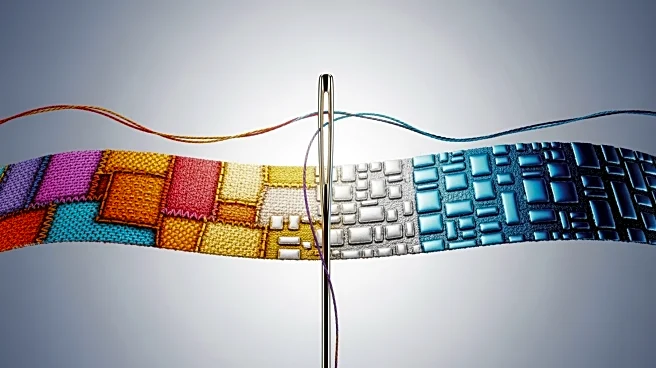What's Happening?
Beacon Power, based in Tyngsboro, Massachusetts, has developed a new carbon fiber flywheel technology capable of revolutionizing short-distance maritime propulsion. These flywheels can spin up to 16,000
RPM on magnetic bearings within vacuum enclosures, delivering 50kW of continuous power for up to 30 minutes. The technology is designed to offer 175,000 deep discharge cycles, making it a viable alternative to traditional battery technologies. The flywheels are modular, allowing for scalable power delivery, with a 1-acre array capable of providing up to 20 megawatts of power. This development is particularly significant for ferry vessels, which could use these flywheels for rapid acceleration and efficient cruising.
Why It's Important?
The introduction of carbon fiber flywheels in maritime propulsion could significantly impact the energy efficiency and operational costs of short-distance ferry services. Compared to traditional lithium-ion batteries, these flywheels offer a much longer usable life expectancy, potentially reducing the frequency and cost of replacements. This technology could lead to more sustainable and cost-effective ferry operations, benefiting both operators and passengers. Additionally, the reduced environmental impact of using flywheels over conventional fuel sources aligns with broader efforts to transition to cleaner energy solutions in the transportation sector.
What's Next?
As the technology matures, ferry operators may begin to adopt flywheel systems, particularly for routes with trip durations under 30 minutes. The implementation will require infrastructure adjustments, such as the installation of flywheel housings and recharging stations at terminals. Stakeholders in the maritime industry, including ferry operators and port authorities, will likely evaluate the cost-benefit ratio of transitioning to flywheel technology. The success of initial deployments could pave the way for broader adoption across other short-distance maritime routes.
Beyond the Headlines
The shift towards flywheel technology in maritime propulsion could have broader implications for energy storage and transportation sectors. The durability and efficiency of flywheels may inspire further innovations in other areas of transportation, such as electric vehicles or renewable energy storage solutions. Additionally, the adoption of such technology could stimulate economic growth by creating new manufacturing and maintenance jobs related to flywheel systems.










